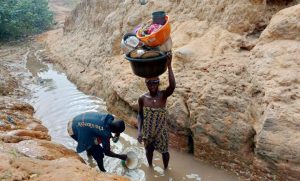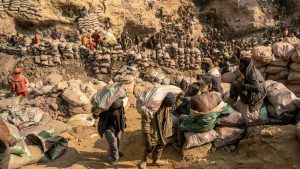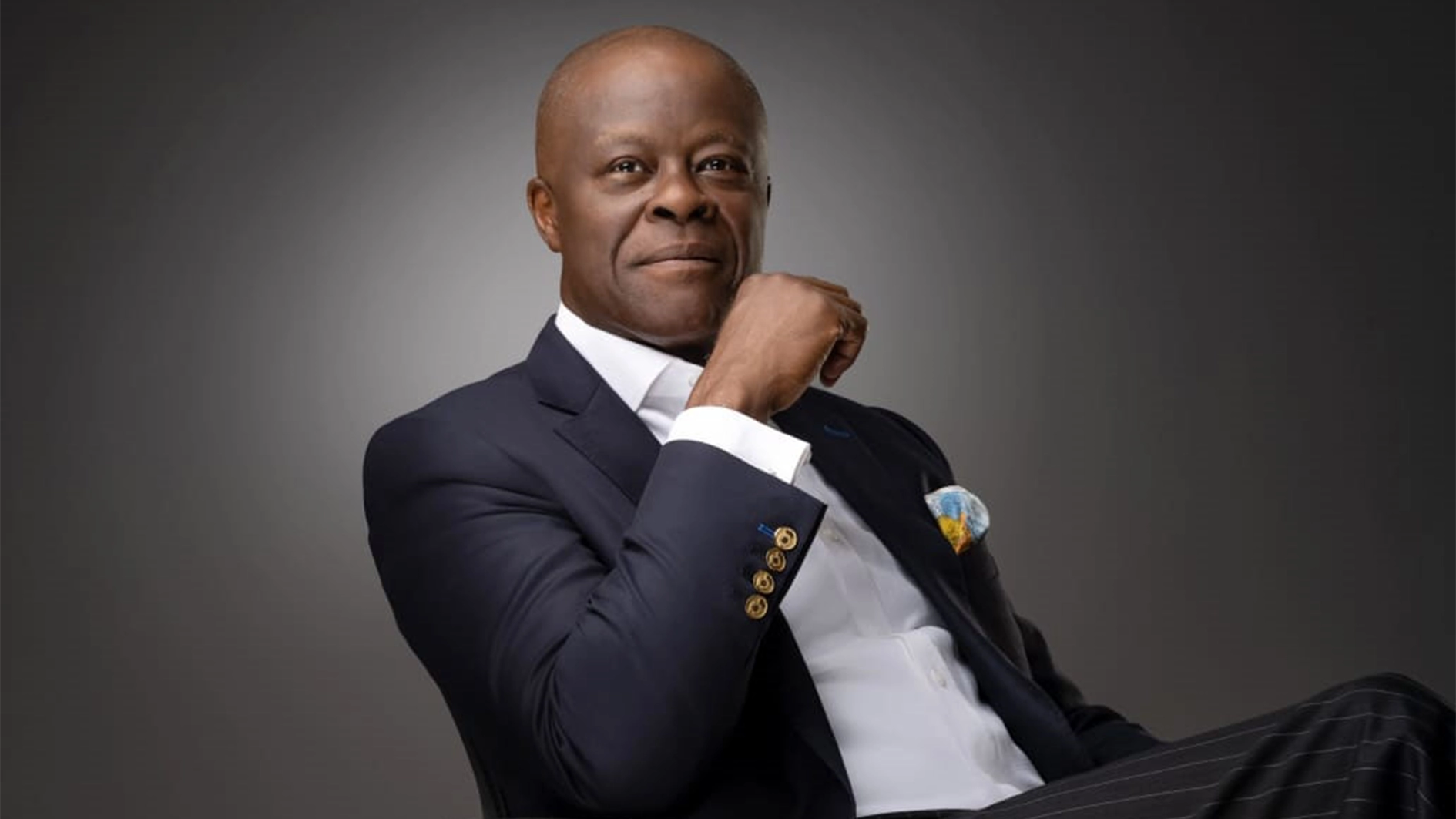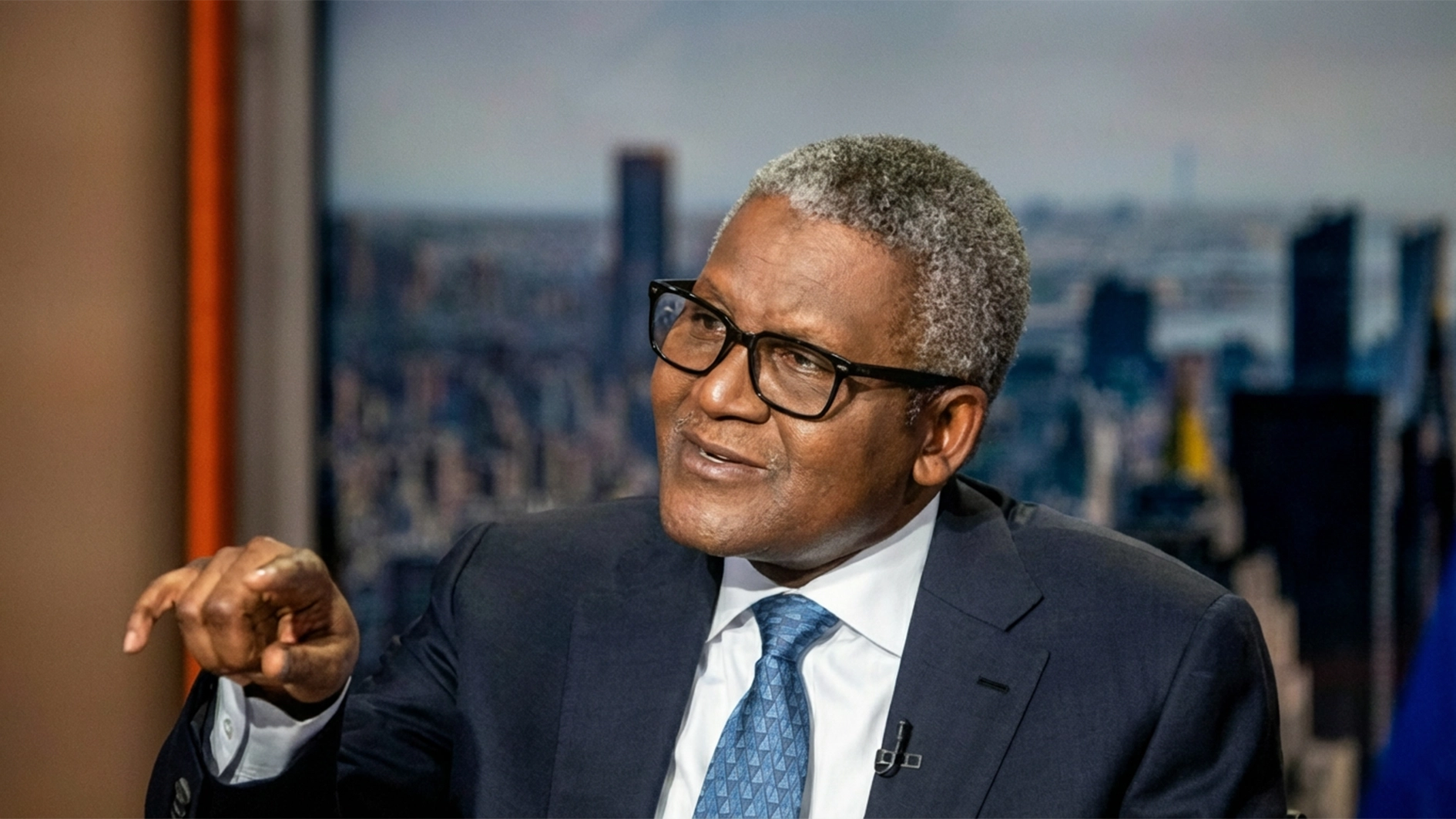• ‘Water For Domestic Use Is Sourced From Stream Shared With Cattle, Washed Gold’
For over four decades, women in Kuchiko-Camp, a dusty artisanal mining community in Tafa Council of Niger State, have endured a silent water crisis. They fetch water from same muddy stream shared with cattle and washed gold. They also cook their meals with same water. What is quite troubling is that they often watch their children battle recurring fevers, skin rashes, and typhoid infections. Karshi, located on the border of Abuja and Nasarawa State, shares a similar story. ENE OSHABA details the deep-seated burdens carried by women in these communities.
Victoria Samuel, a 36-year-old mother of five and local miner, describes the harsh reality of life in Kuchiko-Camp as a daily struggle for water and health.
She said women and children rely on stagnant ponds, competing with herds of cattle for the same murky water and other basic amenities when a lot of money is made in their community from mining activities.
She said for many years they have bought sachet water for cooking, 10 bags a day. That’s N5,000 daily, yet it is never sufficient, as they still make use of dirty water for other home needs.
“We used to queue behind cows at the stream. We also fetch dirty water to wash gold. Children are always sick. But what can we do? We have no choice?” she concluded.
Another resident of the community, Sarah John, a mother of four, also shared the story of how she and her husband battled to save the life of their youngest child who was always sick owing to unclean water consumption.
“We used to sell our goats to pay for treatment. But after recovery, we still had to drink the same dirty water,” she said.The children’s health issues are a direct consequence of the contaminated water, a burden that falls disproportionately on the women who are their primary caregivers.
These experiences are not isolated.
Across Nigeria’s mining fields, women bear the heaviest burdens of an industry that enriches a few while impoverishing the host community. Their testimonies highlight a litany of challenges: water scarcity, environmental pollution, broken homes, dust-choked farms, unsafe pregnancies, and unpaid labour.
Deadly Toll Of Neglect In Kuchiko
The landscape itself reflects neglect. Abandoned mining pits dot the area like open graves, posing a constant danger. Children play perilously close to these sites.
The lack of basic healthcare facilities further compounds the hardship. The nearest primary health centre is over 10 kilometres away, accessible only by motorcycle.
A community leader, Danladi Garba, recounted one particularly harrowing story when a pregnant woman was in labour at night and the entire community went into frenzy for her life and that of the unborn child.
“She started bleeding at midnight and there was no good means of transportation, as nobody owns a vehicle here, so, we carried her on a bike but she died on the way,” Garba said, adding: “Our women die on motorcycles because the government cannot build a clinic here.”
Garba fears more deaths are inevitable.
Cracked Walls, Dusty Skies In Karshi
In Karshi, a community known for granite quarrying and artisanal gold mining, the problems are different but the undertones of neglect are the same. Residents live with daily explosions from mining blasts.
The President of the Karshi Development Association (KADA), Yahuza Abubakar, standing in front of a row of cracked houses, said these explosions are constant threat to their homes and livelihoods.
“After the blasts, you see your house cracking. Some parts even fall down before you know it, and constantly, dust covers everywhere in the air. Our children are growing with coughs because of what they inhale daily. Farmers complain their crops no longer yield fruits. Ninety per cent of our people are farmers. Once you take that away, you take away their livelihood.”
Abubakar elaborated on the pervasive environmental impact, explaining that the blasting is destroying their homes.
“At night, the walls shake. We are afraid our roofs will collapse while we sleep. Our farms are buried in dust. Yields have fallen. Even cassava does not grow well anymore,” he said.
For Rukayya Muhammad, a primary school teacher, the impact is equally grim. Classes are often interrupted by the sounds of explosives. Rukayya, while expressing concern that school building itself is suffering, she noted that ceilings, chalkboards, and even classroom walls have been badly damaged.

She also harped on the psychological effect on the students:”Sometimes, when we are teaching, you suddenly hear a loud sound, and everyone starts running. Nobody can concentrate again, children will be screaming thinking it’s Boko Haram… The children, especially the small ones, are so scared. Any little sound makes them jump. Teaching and learning have been seriously affected. How do you teach in such conditions?”
She pleaded that government should help them talk to these miners “because seriously, their activities are affecting our environment.”
Abubakar also noted: “Our wells break down, water disappears, and we smell sewage because of soak-away crack.”
Despite the enormous wealth in the form of stone, gravel, and dust extracted from their land, which locals estimate to be worth billions of naira, the communities have seen no reciprocal benefit.
“The miners told us they would build 10 boreholes. They built only three. Even when SCC built the roads, they used our materials. But they don’t provide employment for our youths. They take wealth worth billions, but what have we gained? Nothing. Discounted cement or gravel for our cracked houses? Nothing,” Abubakar added bitterly.
Forgotten Hosts Of Nigeria’s Wealth
Despite holding solid mineral reserves conservatively estimated at a staggering $750 billion, Nigeria’s mining sector has long been an economic paradox, contributing a meager fraction to the nation’s wealth.
Historically, the industry’s contribution to GDP plummeted from 4-5 per cent in the 1960s to a low of just 0.17 per cent owing to the dominance of the oil sector.
However, recent reforms are finally changing this narrative. In 2023, the sector remitted over ₦401 billion to the federation account, a massive increase from previous years.
Yet, this recent growth is overshadowed by the immense untapped potential and the ongoing reality that the country allegedly loses billions of naira yearly to illegal mining and gold smuggling, a black market that fuels insecurity and denies communities the benefits of their own resources.
The paradox is that communities that sit on mineral wealth worth billions remain poor, neglected, and thirsty. Samuel Hassan, a community leader in Kuchiko, lamented the years of suffering. “We’ve mined for years, but we have nothing to show. No hospital, no light, no good road. Our women die during childbirth. We rush them on motorcycles at night, before we reach Jiko, they die.”
Hassan scoffed when asked what the local miners earn. “Maybe ₦10,000 to ₦30,000 monthly. Women make less, they don’t have the strength or tools. We sell gold in the bush to buyers. It’s all black market. If you hear someone made ₦50,000, that one na for men.” He echoed the sentiment of many locals that they are being used but not supported. “How much is Nigeria even making from all this mining, and how much reaches us?” Hassan asked.
Women Carry The Cost
According to the Executive Director of Centre for Transparency Advocacy (CTA), Faith Nwadishi, the experiences in Kuchiko and Karshi are not isolated misfortunes but represent a systemic violation of human rights.
“The fundamental human rights challenge is right to life. You know, because of the toxic nature of the mining activities that go on, some of these mining host communities where they use poisonous chemicals to be able to extract the natural resources they have, it leads to poison of the water. I’m sure you have heard of what happens with the gold area where you have lead poisoning, and sometimes, in extracting gold, you need to use mercury also. Mercury is one of the chemicals that they use in washing the sand to be able to get the gold. It impacts the water in that place and this is one of the things that led to the deaths in Zamfara where you heard about lead poisoning. So, the right to life is not just against the women but against people who are living within mining areas and this is a global matter issue.”
Nwadishi further detailed the layered burdens borne by women: “It’s not just in Nigeria. Everywhere you have mining, especially gold mining, you keep having those issues, access to water, so you can also consider water insecurity, infrastructure deficits that you have. So, most times the communities and mining companies have issues around the utilisation of water because over time their activities cause water pollution and so the issue of water security becomes a very serious matter because people will not have access to not even potable water. They won’t have access to water from their streams and their rivers within their community because most times their streams and rivers are towards the downstream and so they get polluted over time.”
She continued, “aside from that, you have displacement issues, once licenses are given to companies you have them coming in, moving in and displacing the community, leading to environmental degradation, leading to insecurity also, leading to disruption of their sources of livelihood. So, if you have fisher folks within those areas, the chemicals that go into the river will definitely pollute the water and make it uninhabitable for aqua, excuse me, it makes it an issue for aqua life to succeed in those areas. So, you have all of those. You also have, for instance, gender-based violence. You have new people moving in, you have mostly men moving in, thereby endangering the lives of young ones. You have high reports of cases of gender-based violence, rape in those communities. And not just rape, you also have high prevalence of sexually transmitted diseases. I remember when I used to do work around reproductive health and all that, you hear from those communities where you have new mines or new industries open, the prevalence, especially on HIV and AIDS at that time, there is high prevalence of HIV and AIDS.”
Nwadishi also highlighted the exclusion of women in the formal sector and decision-making processes, which perpetuates their economic marginalisation.
“There is exclusion of women. So, for the mining sector, there is this provision for agreements to be drawn up, even though in 2023 or 2024, the revised guidelines for drawing up emphasises that women and youth must be part of it. So, in the past, they have not, they didn’t really carry women along in putting those documents as part of the agreement. So, there is an issue of exclusion in that.
“I have seen mining activities affect women’s access to health, to water, healthcare, and a safe environment. So, these issues are human rights issues, and because they do that, it’s difficult.”
Speaking further, she said while identifying what the human rights issues are, the violation of this human rights issue led to the ways they are affected. Women’s access to water, healthcare, and a safe environment. The communities because of the pollution that they have in the groundwater, mixed with different chemicals, in case of lead, and especially in gold communities where they also use mercury. And it’s an age-long issue between host communities and mining companies.
Nwadishi said, “we have a labour law that places restriction on women working at night and on the ground and when you place restriction on women from participating in the real work, even though you have women geologists that have gone to school, but the law, the labour law, does not allow them to do night work, there’s a problem.”
Executive Director of the Nigerian Indigenous Women in Mining and Natural Resources Organisation (NIWIMNRO), Felicia Dairo, added that the burden on women is multifaceted.
“When the environment is damaged, when streams are polluted, and forests are stripped it’s the women who feel the impact first. If a child gets sick because the water is contaminated or the air is polluted, it’s the woman who stays back from work to nurse them,” she said.
“Women are at the mine site, and then they cook, fetch water. If that water is causing infections, it’s women that stay home. Long-term, the toll is heaviest on them. That’s what many people don’t see,” Dairo said.
A Simple Borehole As A Catalyst
The story in Kuchiko is finally changing through a simple borehole intervention by NIWIMNRO. The organisation, recognising the dire situation, pooled its resources to drill a borehole, a move that not only provides clean water but also sparked a broader conversation about environmental justice and gendered burdens.
Dairo explained that their decision to intervene came after an interaction with women miners during a workshop.
“They complained bitterly about the lack of water. We visited their mining site and found they were drinking from the same stream where they washed minerals. That was unacceptable,” she recalled.
“Development doesn’t always have to wait for a massive government budget. This was a gender-focused, low-cost intervention that’s now changing lives and exposing wider systemic issues.
“Water is life. This one they brought has changed our lives. We feel safe for the first time,” said Victoria Samuel.
The Call For Formalisation, Accountability
While the borehole is a vital first step, it is only part of the solution. Dairo emphasised the urgent need to formalise Nigeria’s artisanal mining sector, especially for women. Many of these women do not know the value of what they mine and are often exploited by middlemen. NIWIMNRO is now encouraging them to form cooperatives to access government support and technical services.
The Artisanal and Small-Scale Mining Officer for Niger State at the Federal Ministry of Solid Minerals Development, Halima Ibrahim, acknowledged the existing gaps.

“We don’t call them illegal miners. We say ‘informal’. If you criminalise them, you lose the chance to integrate them. 97% of mining in Nigeria is artisanal. We can’t ignore them,” she said. Ibrahim noted that her department has provided some basic training and resources to miners in Kuchiko, but systemic limitations remain.
“Yes, there are health issues. Children fall sick, women get injured. The methods are unsafe. We need more coordinated efforts across ministries of health, environment, and mining to address this,” she acknowledged.
Experts agree that the lack of accountability and enforcement is a major problem. Dr. Tolu Alabi, an environmental health researcher at the University of Abuja, pointed out that while Nigeria’s 2007 Minerals and Mining Act contains environmental protection clauses, enforcement is weak.
“The environmental damage from unregulated mining leads to long-term health complications especially for women and children. Respiratory problems, heavy metal exposure, poor maternal health. These are not abstractions – they are happening,” she warned.
Alabi explained that the law requires environmental impact assessments and community development agreements (CDAs), but these are rarely enforced.
“But enforcement is almost non-existent. Companies get licenses and move in. Nobody monitors. Communities bear the cost.”
Solutions, Glimmer Of Hope
According to Nwadishi, a multi-faceted approach is needed to address the challenges faced by women in mining communities. The first step is to fix the regulatory and licensing issues.
“So, we have regulatory issues, then the formal licensing, issues of licensing, how many women are part of that, and how many women can actually be able to afford the equipment, the type of equipment that you need to do that. Native reports on the women’s participation in the mining will show you that even with the knowledge, there’s a low number of women that are employed.
“Women are usually found more in the informal sector than you have at the top management level. You have fewer women there, women who are able to apply to own mines or have the concession to be able to do that. So mostly you see women at the lower chain where economically it’s not viable to them.”
She believes that the revised guidelines for Community Development Agreements (CDAs), which now emphasise the inclusion of women and youth, are a step in the right direction.
“The CDA is a common development agreement. That emphasises that women must be on the table to negotiate that. If only we can get women, for instance, on the CDA, communities can ask for capacity building or sustenance for women. That could help build skills for women who eventually will put these skills into use and be able to benefit from them. But since they’re not on the table having all of these negotiations, it’s not possible. Nwadishi also stressed the importance of women forming cooperatives to gain a collective voice and legal protection against exploitation.
“Most times what you see on common development agreements that they want to be the chief parlors, they want to do this but not really focusing on women. But the new revised CDA 2023 emphasises that women’s livelihood must be given priority and that women should be part of it. And then also we can look at having cooperatives, women having cooperatives so that they have a legal voice. People will not just go there and undermine them and take away what they are supposed to benefit.” She further highlighted the need for better data collection and a more robust oversight mechanism.
“It’s important to ensure that we have these tracking mechanisms for the implementation of all of this. And also, to tie some of these laws that we have in the country to what we have, the gender policy that we have. We have a gender policy that is never implemented. That gender policy is supposed to be integrated into every law that we have. But unfortunately, that’s not happening. So we need to be able to have gender-disaggregated data.”
The biggest challenge, she concluded, is a lack of accountability.
“So, for me, the biggest accountability gap that we have is that we have some of these things put on paper, but there’s no proper implementation, there’s no proper monitoring. For instance, environmental impact assessment that is done before commencement of mining, what are the gender components, who holds who accountable, who ensures that what is on paper is properly done. At the National Assembly, even some state assemblies, you have committees on mining solid minerals, but how far have they been able to play oversight? What is the accessibility of community people to these legislative arms that play oversight? So, it’s really the level of accountability is low and it’s important that we address it,” she urged.
Nwadishi also pointed to the success of a collective effort in Zamfara to address a lead poisoning outbreak.
“When you go to some of these communities and things are happening, it’s they are attributing it to the gods not being happy with them without looking at the costs of it. So, people were mobilised, governments were spoken to and then we had that intervention. That’s intervention and that’s why you can safely say that there’s less poisoning. But we now have security issues and this issue of community development agreement for women to be part of it.”
NIWIMNRO’s work represents a growing movement of civil society actors filling the void left by government and private companies. As Gbenga Adeoti, a policy lead at a natural resource advocacy group, stated, “This is what citizen-led accountability looks like. If government is failing to implement its own mining laws, groups like NIWIMNRO are forcing the conversation.”
He believes that the Kuchiko borehole should trigger a wider policy rethink. “Why are communities sitting on billions in minerals but dying of thirst. How do we reimagine mining so that it benefits Nigerians and not just foreign firms or middlemen?”
For Dairo, the borehole is a symbol of visibility, proving that progress is possible when women are seen and heard.
“Kuchiko is no longer invisible, and its women are no longer voiceless. But visibility must translate into responsibility. If water can flow again after 40 years, then so can justice, one borehole, one community, one woman at a time. It shows what’s possible when women are empowered with information, access, and support, they change everything,” she said.
While NIWIMNRO plans to replicate the intervention, Dairo insists it cannot be done alone. “We need a government. We need private sector buy-in. We need stronger enforcement of mining laws. The women are ready. The question is: is Nigeria ready to support them?”






